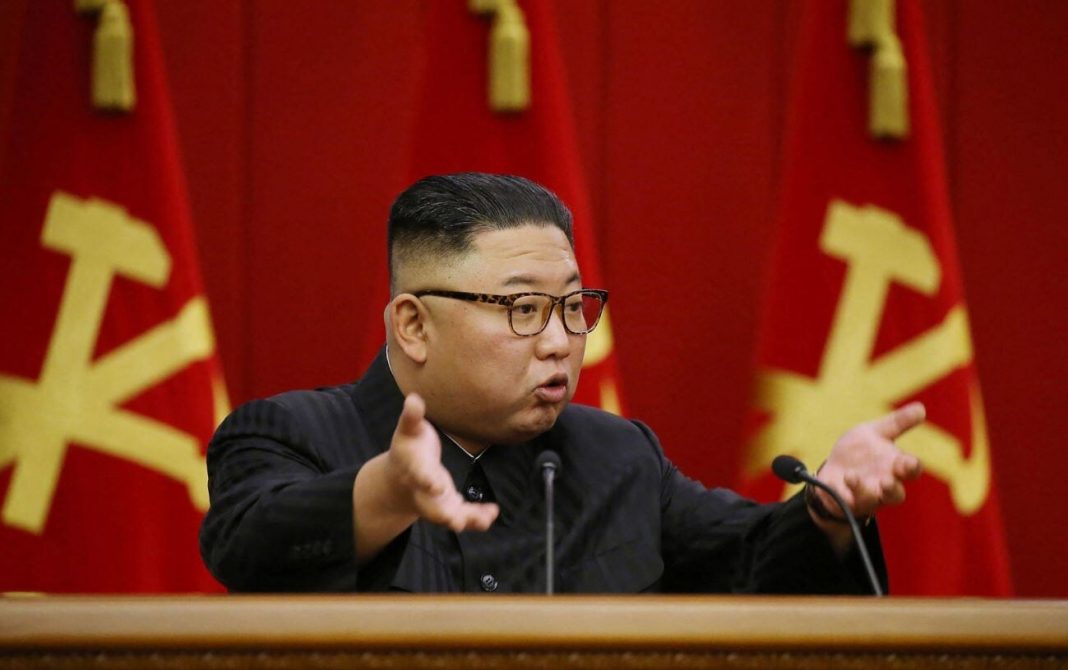Russia’s invasion of Ukraine continues. China has intensified its pledge to acquire Taiwan. In the United States, Democratic-Republican conflicts have exacerbated political differences. North Korea’s leader, Kim Jong-un, warned that the United States could no longer consider itself a “unipolar” superpower in a new “cold war” while the Biden administration was preoccupied on numerous fronts. North Korea is a small, isolated country of 25 million people.
Mr. Kim has spent the most of the year antagonising the United States and its allies, testing a record-breaking 86 missiles and even rehearsing the launch of a nuclear missile at South Korea. This month, North Korea launched 23 missiles in a single day, one of which plummeted into seas only 35 miles off the east coast of South Korea, prompting islanders to take safety underground. In the last several weeks, it has flown Soviet-era warplanes and fired hundreds of artillery rounds near the South Korean border, in addition to launching an intermediate-range ballistic missile over Japan.
With Russia threatening to use nuclear weapons and relations between Washington and Beijing deteriorating, Mr. Kim likely perceives an opportunity: In an increasingly unstable world, there is no better time for him to test his weapons, demonstrate his advancing technology, and provoke his enemies while attempting to gain diplomatic leverage.
Lee Seong-Hyon, a senior scholar and North Korea specialist at the George H.W. Bush Foundation for U.S.-China Relations, said, “North Korea has been firing anything it wanted to fire, and testing everything it wanted to test.” However, neither the United States nor South Korea can do much about it at this moment.
According to Mr. Kim, North Korea’s economy is in dire straits due to years of U.N. sanctions and the coronavirus outbreak. Mr. Kim, 38, who has been in charge for more than a decade, seems to perceive a geopolitical shift in his favour. In a legislative address last year, he forecasted the emergence of a “neo-cold war” throughout the world. In another address, he urged his nation to prepare for “the transition from a U.S.-supported unipolar world to a multipolar one” in which China and other U.S. foes lead as equals.
Analysts say that these events have fueled expectations in Pyongyang that North Korea may once again get the financial and military backing it had from Beijing and Moscow during the Cold War. Mr. Lee said, “No nation desires a new cold war more than North Korea, since it raises its strategic worth to China and Russia.” “No atmosphere is more favourable to the survival of an isolated, undeveloped nation like North Korea that perceives itself to be in a continual standoff with foreign foes than the cold war.”
Mr. Kim regards his nuclear weapons as critical to preserving his regime’s security and keeping an upper hand over South Korea, which he ridicules as a modern vassal state that follows its cues from Washington. Mr. Kim not only expects a larger nuclear arsenal to help solidify his domestic leadership, but he also seems to feel it would enhance his negotiating position should discussions with the United States resume.
Washington has grown more doubtful that real conversations with Pyongyang are still conceivable, and North Korea has been more eager than ever to get its attention.
Washington, Seoul, and Tokyo assert that North Korea might perform its seventh nuclear test at any moment. If it does, Washington and its allies may be limited in their ability to implement sanctions.
This month, the U.N. Security Council was unable to put through further penalties against the North in response to its recent missile launches, which violated U.N. resolutions. China and Russia, two veto-wielding countries on the council, opposed to the Washington-led initiative.
Since 2019, the nation has tested an assortment of new, mostly short-range missiles, some of which are meant to travel at hypersonic speeds or manoeuvre in flight. To make them more difficult to stop, they have been launched at irregular hours and from varied sites, including trains and an undersea silo.
If North Korea resumes nuclear testing, it may test smaller, lighter “tactical” nuclear warheads that it aims to install on its newest, short-range missiles, increasing the danger to U.S. partners in the area, according to South Korean military officials.
In addition to being a political issue, testing them is also a technological one. Shin Beom-chul, deputy defence minister of South Korea, said in a television interview aired last month, “They must be technically prepared.” “This may not be a one-time examination. North Korea may perform two or three consecutive nuclear tests.

